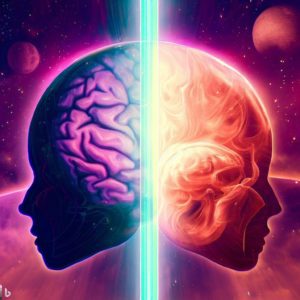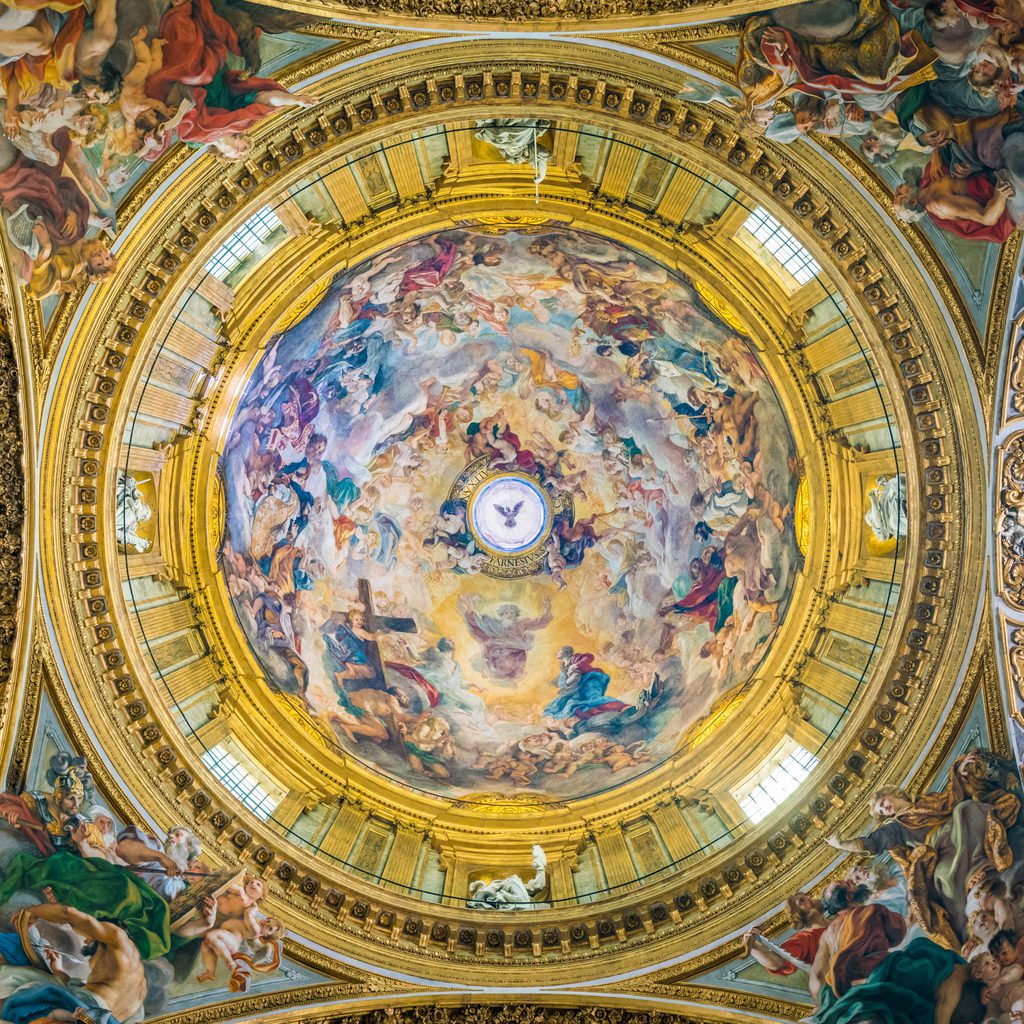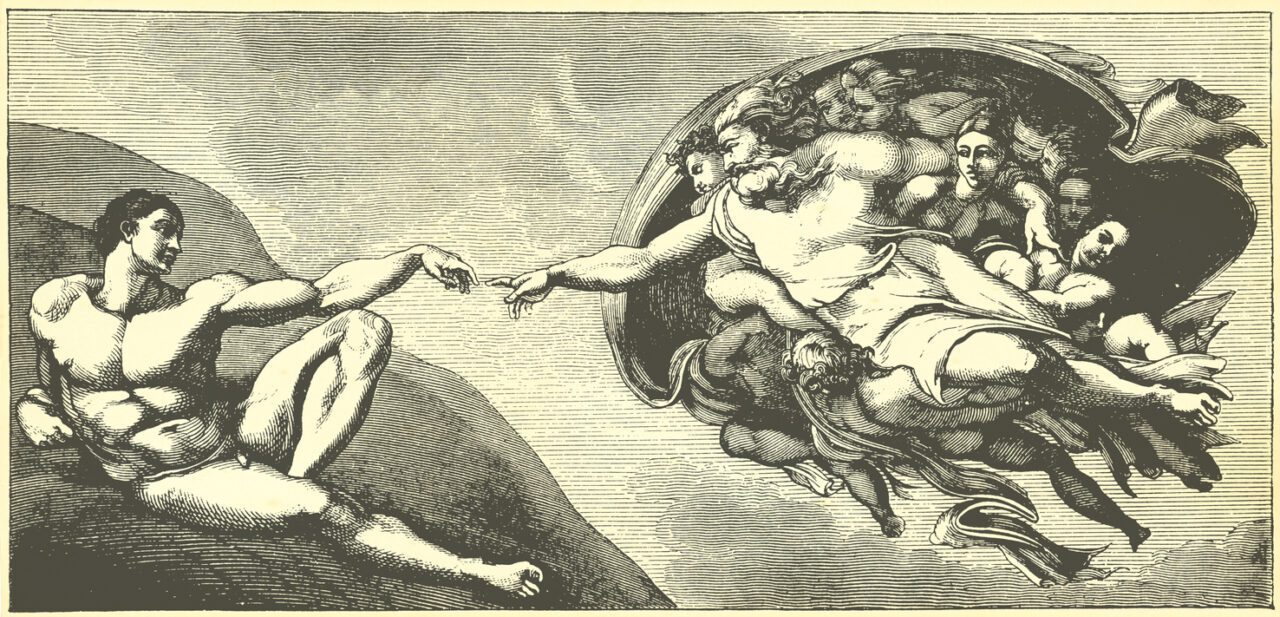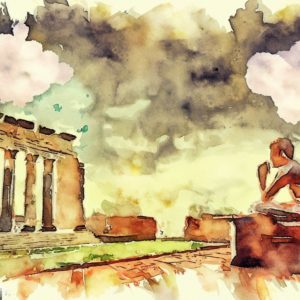Welcome back to the Logos of Experience and Truth Podcast, where I work to unlock the mysteries of the Beatific Vision of God.
I spent some time talking about the mysteries, and I’m going to do that a little bit more here, trying to specifically answer what are the mysteries exactly? I’ve mentioned what they evoke, or essentially what they were supposed to produce or what you were supposed to experience by undergoing, pursuing, learning, being taught what are called the mysteries in the ancient world. They brought knowledge of the self. They brought knowledge of God. They brought knowledge of one’s place in the universe. They brought knowledge of immortality, or the immortality of the soul—brought knowledge of the soul, right? Soul and self are usually the same thing in these ancient teachings.
But what are they exactly? Right? They say the mysteries. But what are they exactly?
Well, there’s lots of speculation on this, again, as I mentioned in the previous episode. There was a gigantic amount of secrecy attributed to this, punishable by death essentially, if you spoke on the mysteries. A more modern version of this is, “You do not talk about Fight Club,” right? And that’s what these mysteries were. It was the ancient world’s version of the Fight Club idea. You don’t talk about it, but you can experience it and it brings a sense of liberation, much like in that movie as well.
I also mentioned that going to these mysteries was like visiting a spa. The reason why is it’s soon to be my anniversary and we’re planning on going to a spa. But the more concrete way of explaining it is as some kind of a spiritual retreat. Now, there were different versions of these mysteries as I mentioned. It seems like you could just kind of go and prepare a little bit and do it during the festival season that they had for it but then there were others that would live there, that would live in the temple or in wherever these mysteries were taught. And that was a different version of it called the greater mysteries essentially, is kind of the way they’ve been categorized.
So, what are they? Well, it’s some type of method or the knowledge of the method of how to acquire this knowledge of the self, knowledge of God, etcetera. The teachings of what and why this knowledge brings this about or the method by which such things are learnt. Again, it’s speculative on what exactly the mysteries are, and as I mentioned, the translation of mysteries are sacraments, so the sacraments themselves are the mysteries if you’re Catholic or Orthodox, or in any of the Protestant denominations that still partake in some of these different sacraments or mysteries. But that’s what mysteries are. They’re these methods by which the invisible, the unknown, are administered, given. . . channels, highways to spirituality, highways, pathways to understanding our relationship in this universe to both ourselves, our soul, our spirit, God. That’s what these mysteries are.
But in terms of a practical sense of what are they, it is some kind of teaching, path, method by which to come across these. So, I was thinking of OK what example can I give with this and the one that immediately popped in was the vision of Hermes Trismegistus. I mentioned Hermes and several different things. I am thinking of the vision written in Manly P Hall’s, “The Secret Teachings of All Ages,” or in G.R.S Mead’s, “Thrice Greatest Hermes.” And the way it literally opens up is Hermes gave himself up to meditation using the methods that were taught to him by the temple and by his doing this he beheld some kind of a vision of what was called the mind of the universe, the Emperor of the universe, the Pomander to him, and began to speak and teach him of these hidden things of reality.
The point though is that he learned some kind of method from the temple priests, and it was learning this method that through him practicing this, he was able to have this mystical experience and vision. Now that entire method, none of that is actually explained in that. You have to go on to some of the other Hermetical teachings where it kind of breaks some of that stuff down. If you go into the more modern occult stuff like, “The Kybalion,” that dives into it in a more concrete manner. . . of these are the kind of things you have to understand and then maybe you would understand I guess, the vision of Hermes and how he gave himself up to meditation by the method that the temple taught him.
So, the temple, the priests, they had some way of imparting this knowledge and whoever is the writer of this vision—the original one—since obviously I mentioned in another one, there’s a dispute if there was an actual Hermes, or if Hermes is just kind of the collective name for these types of teachings and the teacher who taught them. When you dive into the text, Hermes is basically the name for the mind that’s just teaching Hermes, so it’s interchangeable with the person that’s listening as well as the mind that is teaching, especially when you read the, “Mind unto Hermes,” which is one of the, at least in my opinion, one of the greatest teachings of both Hermeticism but also mystical teaching in general. Just kind of understanding what exactly is going on in these types of things.
So, it is some kind of a method.
Now if you go over to the eastern religions, Hinduism, Buddhism, they will directly tell you that learning yoga or meditation, those types of practices and the various practices that they will then teach are all geared towards bringing some type of an experience, the culmination of which is called Enlightenment, right? You are. . . you are reaching some type of an enlightenment. What that enlightenment is seems to kind of vary depending on which religion and what your ultimate goal is, I guess, you know, those different types of things. So, enlightenment for one person seems to be enlightenment for somebody else and then it might not be for somebody else. So, it is kind of strange when it comes to that. You know, is it some type of an annihilation? Is it some type of release, which is the general consensus of it. It is released from the wheel of suffering, right, from samsara.
In the Western tradition, especially in Christianity, in the title of what we are talking about, the beatific vision, we will get a little bit more in depth into that, but it is, as I said it, that is the name for the mystical experience. But in the Christian sense, it is the theophany, right? It is seeing God or God showing himself to you in some way. That would be the beatific vision, the enlightenment within Christianity and whatever section you might be looking at, but especially beatific vision pertains more towards Catholicism as well as Orthodox Christianity.
So, there’s some type of a method, or some type of a learning, or some type of a path, some type of a teaching that is acquired, learned, given by the master in some way that imparts this knowledge that creates or brings the mysteries into somebody’s consciousness by which, through the pursuit or walking of this, or as Jesus says, the walking of the narrow path of this: the culminating experience can be experienced. And that culmination can be whatever to whatever person, but theophany, beatific vision, enlightenment, release from the wheel of suffering, all these are the terms that exist for what is at the end of the rainbow, essentially of this. And I think that that is a good segue into some of the further talks and podcasts that I will be doing. I think I have given a general idea of the mysteries. It is difficult to define fully because we are talking from one epoch of time, BC before Christ, and then another epoch of time after Christ. And that is essentially from the Western standpoint of course, since there’s kind of a continual line of this especially in Hinduism going back, or the way that they have taught it going as far back as mind can remember.
So, we will leave it at that and in the next episode we will dive into a little bit deeper of the mysteries, as well as the beatific vision itself.
Until then.





